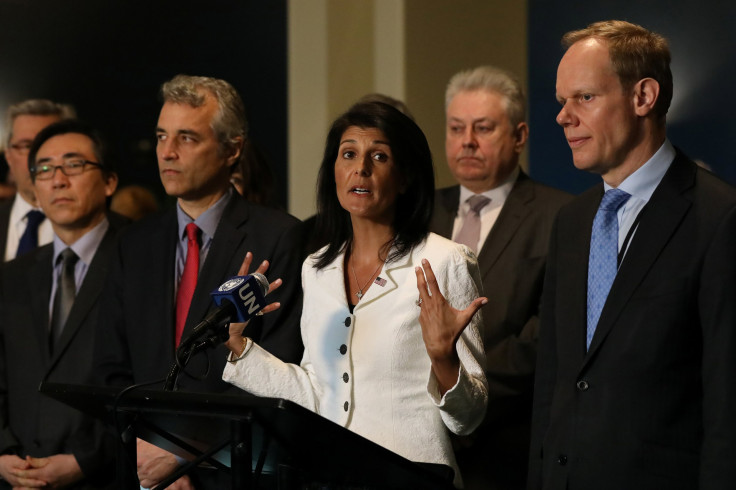New Nuclear War? US, UK, France Others Vote Against New Treaty In United Nations

Nearly 40 countries, including the United States, reportedly opted Monday not to discuss a new nuclear weapons ban treaty before the United Nations General Assembly in New York, Reuters reported.
Ambassador Nikki Haley said the U.S., as well as the United Kingdom and France, decided to stick with 1970’s Non-Proliferation Treaty even after the General Assembly voted for talks for a new measure in December. Haley specifically cited North Korea and hinted at its ongoing missile and nuclear programs, which have resulted in new tests full in the face of UN sanctions and warnings.
Read: Was U.S. Airstrike In Mosul A War Crime?
The General Assembly almost overwhelmingly called for a new treaty, with a vote of 113 for, 35 opposed and 13 countries abstaining.
"There is nothing I want more for my family than a world with no nuclear weapons. But we have to be realistic. Is there anyone that believes that North Korea would agree to a ban on nuclear weapons?" Haley told reporters.
Haley mentioned “bad actors” in today’s world as reasons to avoid new talks.
"You are going to see almost 40 countries that are not in the General Assembly today," Haley said. "In this day and time we can't honestly that say we can protect our people by allowing the bad actors to have them and those of us that are good, trying to keep peace and safety, not to have them."
French and British diplomats also echoed Haley’s sentiments and decrees on how effective a new treaty would actually be.
Read: Russian War Games?
Though a recent missile test failed last week, two U.S. officials said satellite images suggested the North was ready to executive its sixth underground nuclear test at “any time,” CNN reported Friday.
Over the last year, Kim Jong Un’s regime and military had increased its missile and nuclear testing and made threats towards the U.S. and South Korea. The tests, and the increased frequency of them, had put much of the region and the U.S. on high alert while more sanctions were placed on 30 people and entities from 10 countries, including China, Russia and Iran, for violating export controls, the Wall Street Journal reported.
© Copyright IBTimes 2025. All rights reserved.





















